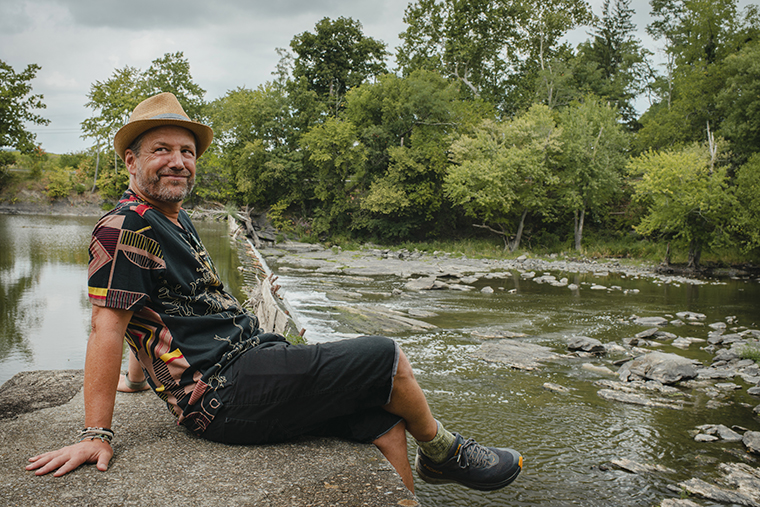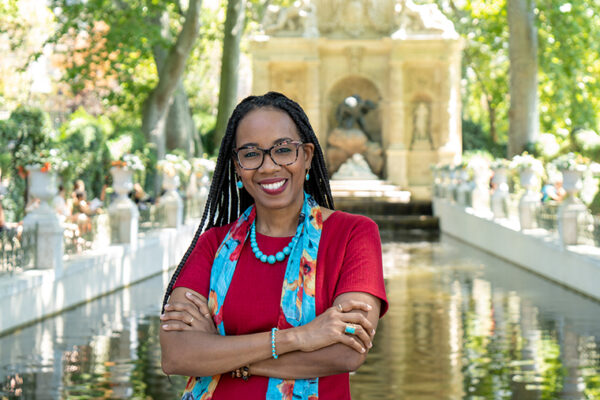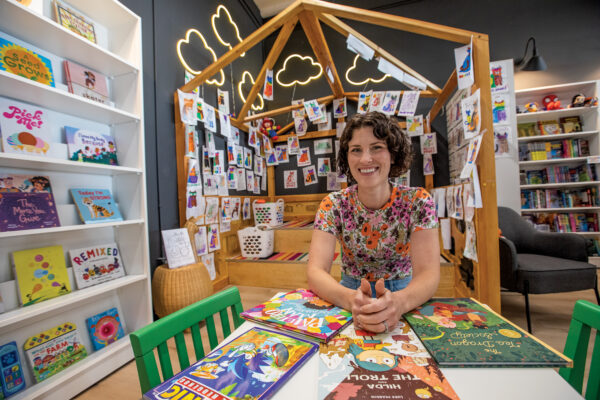As the founder and CEO of City Winery — a national chain of top-notch music venues that also offers fine dining with an emphasis on (as the name suggests) wine — Michael Dorf, AB ’84, BSBA ’84, imparts this bit of sage advice: “Indulge your senses.”
It’s City Winery’s corporate slogan as well as the title of Dorf’s 2019 book chronicling his life and sometimes tumultuous times in the business world, which, prior to City Winery, included the founding of the Knitting Factory, an incubator of the underground New York music scene and, prior to the bursting of the tech bubble, an early titan in the realm of digital music.
The book, subtitled Scaling Intimacy in a Digital World, also provides some buttoned-down business advice: Embrace change. Keep it real. Find a balance.
“I certainly feel you should 100% believe in and want to utilize a product that you’re selling,” Dorf says. “When I was 23, 24, I wanted that standing-room, beer-drinking experience,” which the Knitting Factory supplied. Years later, Dorf became a family man, and his wants and needs changed in a more sophisticated direction. When attending a concert, he wanted to go to a small venue with an excellent sound system. He wanted to sit and be able to choose his seat. He wanted the show to start at a predictable time so he could fit it into his busy schedule. And he wanted to be able to have a great dinner with excellent wine on the premises, so as not to have to rush from restaurant to concert venue.
Thus, City Winery was born, where patrons can see artists from across the musical firmament, such as Los Lobos, Bettye LaVette, Robert Fripp, Steve Earle, Marshall Crenshaw, Salif Keita, Joan Osborne and Suzanne Vega.
Dorf wants every City Winery concert to feel like a special occasion — “something that becomes a memory you want to relish,” he says.
“If you go to a show and it’s one of your favorite artists, that can be very deep and powerful,” he continues. “And we see it as an enhancement of the overall experience when you can have really good food, and the wine is flowing, and you can be sitting with friends. Like, this is the best of what life has to offer. And that’s what we’re trying to create every night for people.”
So where did Dorf’s taste and talent for entrepreneurship come from?
As it turns out, it’s part of his DNA. Dorf hails from Milwaukee, where his grandfather founded the Milwaukee Biscuit Company. His father expanded the business considerably but sold it before it passed to a third generation, forcing Dorf to carve his own path.
Much of what eventuated originated at WashU. Dorf graduated in 1984, double majoring in business and psychology — which is a story in itself. At the time, the business program didn’t allow double majors, so Dorf, in the spirit of rebellion, registered under his real name as a business major and, subbing in his middle name, under “Michael Ethan” as a psychology major.
“I was two people,” he says with a laugh. “And I have two diplomas.”
‘If you go to a show and it’s one of your favorite artists, that can be very deep and powerful.’
Michael Dorf
As a student, Dorf was part of concert committee Team 31, where he came into the orbit of some of the artists performing at WashU. He laid out the backstage deli spread for King Crimson; he carried an amp for Bono when U2 played its first St. Louis gig at Graham Chapel.
Those experiences — as well as managing his friends’ band, Swamp Thing — laid the groundwork for what would become the Knitting Factory and City Winery. But Dorf found WashU’s extracurricular programs to be of lasting value, too.
He was president of the Outing Club, which organized spelunking, canoeing and backpacking trips — things that continue to be part of his life. Each year, a group of his closest WashU friends get together for backpacking and rock climbing — a tradition of 32 years and counting.
“I think I’m living proof of how those things ultimately can become part of a career and your life,” he says.
And Dorf continues to walk it like he talks it, expanding his business (he expects to open City Winery St. Louis this winter) even as he continues to live his best life.
At the time of this interview, he’d just returned from a trip to Europe. Was it business or pleasure?
“Both,” Dorf says. “Everything in my life is always both.”



